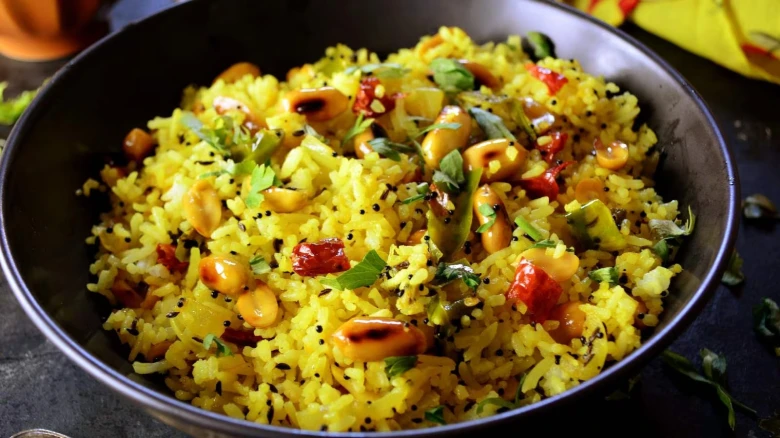Regional

Because it is rice-based, it is a good source of rapid energy and vitamin B, according to the expert. "Poha is lactose-free, gluten-free, and almost fat-free," she says, adding that it is also easy to digest and light on the stomach.
Digital Desk: Poha
is a popular and nutritious breakfast option. The light and delectable snack is
a staple breakfast option in many Indian households because it is quick and
easy to prepare. While many individuals consume poha on a regular basis, they
may be unaware of the numerous health benefits it provides. Poha, according to
Ruchika Jain, Chief Dietitian at Fortis Hospital, is highly nutritious and
offers various health benefits.
Because it is rice-based, it is a good
source of rapid energy and vitamin B, according to the expert. "Poha is
lactose-free, gluten-free, and almost fat-free," she says, adding that it
is also easy to digest and light on the stomach.
"It can easily be consumed as part of
a soft diet recommended for various health issues such as typhoid, hepatitis,
Irritable bowel syndrome (IBS)," the nutritionist continued.
Poha contains about 4.6% iron since the
rice is passed through iron rollers during the manufacturing process. Flattened
rice retains some of the iron from the process and is hence termed iron-rich.
"You can squeeze lemon juice into your poha to help your body absorb the
iron better," she advised. Chef Sanjeev Kapoor also promoted the health
advantages of poha on his Instagram page. "Poha is a rich source of
healthy carbohydrates (70%) and has a very low fat content (30%),"
according to the chef's article. He also said that poha is a good probiotic and
may help keep the intestines healthy.
Poha can be prepared in the traditional manner with peanuts,
curry leaves, onions, potatoes, and vegetables, or as chivda, which can be
served as an evening snack. "Peanuts, soya granules, and sprouted legumes
can be added to make it more protein-rich and filling." "More
vegetables should be added to make it more nutritious, tasty, and filling,"
Ruchika suggested.

Leave A Comment